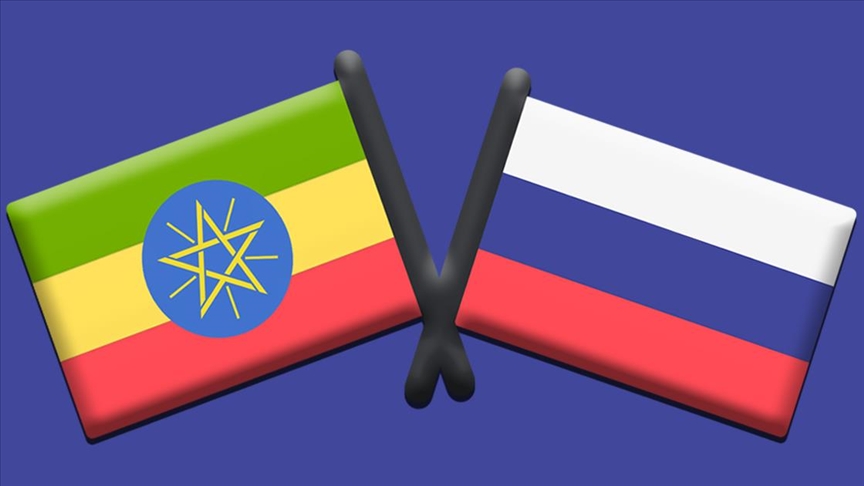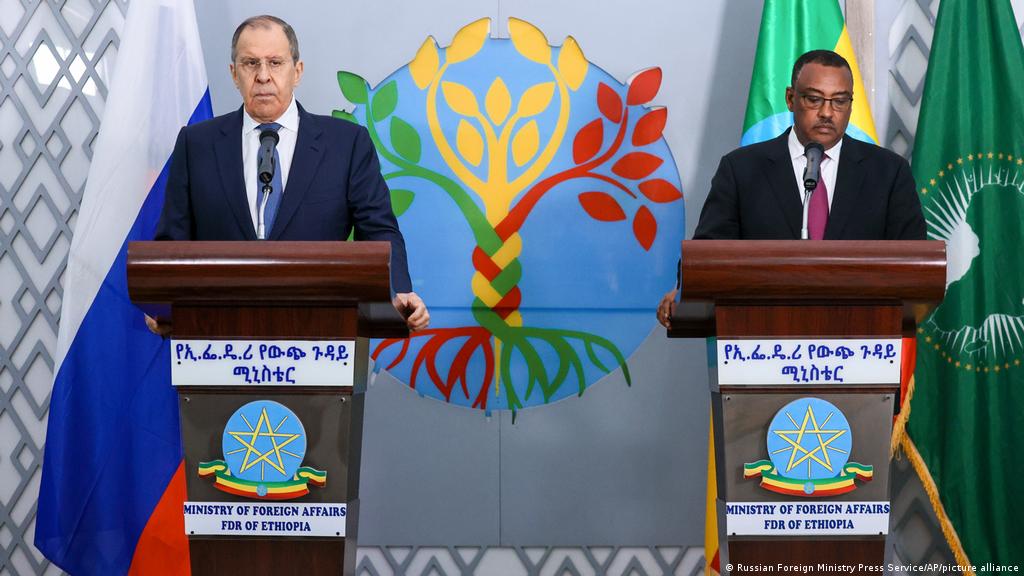
DEGEHABUR (HAN) August 2, 2022. Public Diplomacy and Regional Stability Initiatives News. Monitoring Regional Issues. This is an exclusive interview with Andrew Korybko. Andrew is a Moscow-based American political analyst specializing in the relationship between the US strategy in Afro-Eurasia, China’s Belt & Road Initiative, Russia’s geopolitical balancing act, and Hybrid Warfare.
1. Russian FM Lavrov was in Addis Ababa last week. PM Abiy hasn’t been seen for the last few weeks, so why didn’t the Russian envoy wait till he was back?
Foreign Minister Lavrov’s trip was intended to coincide with his participation in several multilateral meetings and with some of their representatives. While in Egypt, he met with members of the Arab League, while he met with some representatives of the African Union while in Ethiopia. He then departed from Africa to participate in the SCO Foreign Ministers’ meeting in Tashkent. This sequence of diplomatic events confirms that the trip was preplanned and intended to show that Russia isn’t isolated like the US claims. It had nothing to do with one or another leader’s schedule. The trip was successful and showed that Africa is eagerly embracing Russia and wants to expand cooperation with it.
This sequence of diplomatic events confirms that the trip was preplanned and intended to show that Russia isn’t isolated like the US claims. It had nothing to do with one or another leader’s schedule. The trip was successful and showed that Africa is eagerly embracing Russia and wants to expand cooperation with it.
2. Ethiopia is the historical cradle of anti-imperialism and Pan-Africanism. How can Russia play a part in stabilizing Africa and the Horn of Africa?
Russia is adamantly against all attempts at foreign meddling in the domestic affairs of other countries. To this end, it’s proudly stood in solidarity with Ethiopia at the UNSC and prevented the US-led West from interfering in its ongoing anti-terrorist operation aimed at preserving the unity of this cosmopolitan civilization-state. Moscow also cooperates very closely with Addis on the military front and its ambassador earlier pledged to assist Ethiopia’s rehabilitation after the current conflict ends. These efforts will help stabilize Ethiopia, which that same ambassador previously said is a prerequisite for stabilizing Africa.
3. Russia is building its military influence in Africa. Moscow has been eyeing the Horn of Africa for the last few years. Russia & Ethiopia inked a military cooperation agreement last year. How can Russia balance power in the Horn of Africa?
The Kremlin’s foreign policy is strictly non-ideological and adheres to the principle that bilateral relations shouldn’t ever be pursued at the expense of any third parties. Its military cooperation with Ethiopia therefore isn’t aimed against any regional countries but is purely meant to help its partner maintain domestic and regional security against a panoply of threats, both conventional and unconventional. Regarding the first-mentioned, it’s intended to serve as a deterrent to foreign aggression, while the latter relates to bolstering its anti-terrorist capabilities. Ethiopia isn’t Russia’s only partner, though, and Moscow is eager to militarily cooperate with other regional countries too.
4. Russia’s renewed interest in the Horn of Africa is clear. Russia, as a major producer and exporter of oil and natural gas, does not need new supplies of energy from Africa. Is Moscow more concentrated with political cooperation and arms sales than investment into natural resources?
Moscow’s engagement with the Horn of Africa and the rest of the continent more broadly is aimed at facilitating Africa’s rise as an independent pole of influence in the emerging Multipolar World Order. In pursuit of that, Russia prioritizes security and energy cooperation to stabilize Hybrid War-afflicted and -threatened states from Western-backed terrorist-driven destabilization scenarios as well as to help ensure the basic needs of their populations. The Kremlin predicts that the 21st century will be the Afro-Asian Century due to both continents’ complex mutual interdependence that will accelerate multipolar processes, which is why it’s interested in helping Africa reach its promising geostrategic potential.
5. Russia is engaged with the Ethiopia-Eritrea-Sudan Triangle. What’s its current economic and military cooperation with the regional countries that have undergone sanctions such as Eritrea and Sudan?
Russia only abides by UNSC-endorsed sanctions and not unilateral US-led Western ones. It regards Eritrea and Sudan as important partners for military-strategic reasons related to expanding its influence in the Gulf of Aden-Red Sea (GARS) region through which a sizeable amount of international trade traverses. Eritrea remains a close partner in spite of the West’s efforts to isolate it, as does Sudan, the latter of which has recently come to serve as a base for Russia to expand its regional influence. In particular, Moscow and Khartoum reportedly cooperate very closely on domestic security and resource extraction, which serves to help stabilize this Hybrid War-afflicted state and is thus mutually beneficial.
![]()
Published under Creative Commons Attribution-NonCommercial 4.0 International licence. Cite Ethiopia Insight and link to this page if republished.


Leave a Reply